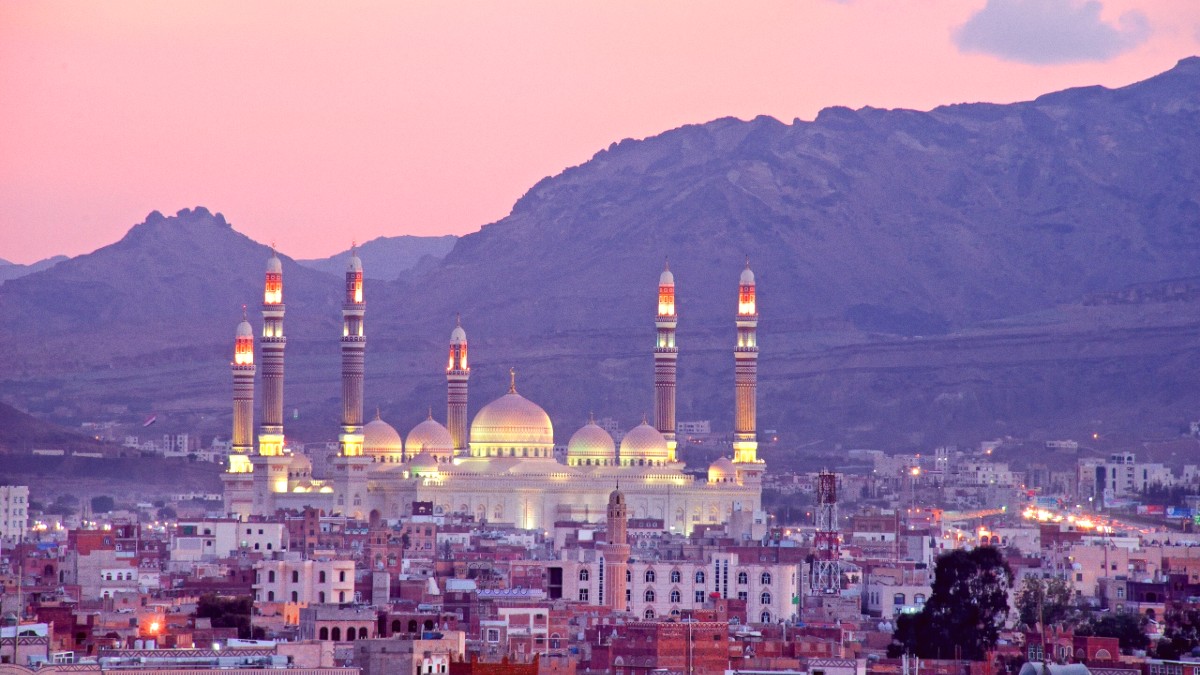
Yemen presents diverse climate patterns across its regions, from hot and humid coastal plains to more temperate highlands and extremely dry eastern deserts. Seasonal variations impact temperatures and rainfall, with flash floods occasionally during highland rainy seasons.
For those present in Yemen, preparation for these weather conditions is in addition to severe security challenges.
Standard tourist visas are not issued. Entry remains severely restricted. Typically, only humanitarian aid workers, journalists, diplomatic personnel, or individuals with specific, official invitations from recognized entities enter. The process for obtaining permission is complex and subject to change due to the unstable environment.
Immigration procedures are not standard and navigate multiple checkpoints, controlled by various armed groups. This leads to delays and additional scrutiny. Movement outside secure compounds often requires additional, specific permits and pre-arranged security escorts.
Severely Restricted
Aid workers, journalists, diplomatic personnel with official invitations.
Tourist visas are not issued.
Complex & Unpredictable
Passport, approved visas/permissions, invitation letters from sponsoring organizations.
Multiple checkpoints by various armed groups cause delays and scrutiny.
Standard Vaccinations
Yellow Fever (if from endemic area), Polio (for exit), routine vaccinations.
Health checks upon entry are inconsistent. Verifiable documentation is important.
Standard budgeting for typical travel styles is not applicable in Yemen. The country's economy collapsed due to the conflict, and widespread scarcity impacts costs. Any costs associated with presence in Yemen are mainly driven by necessary security arrangements, logistics, and the extreme difficulty of obtaining goods and services. Independent budget travel is not feasible or safe.
The local currency is the Yemeni Rial (YER). Due to the conflict, multiple exchange rates exist, especially between areas controlled by various factions. Access to cash is difficult in many areas. ATMs are largely unreliable or non-functional. Credit card use is extremely limited, typically only within specific international compounds.
Very limited, typically secure compounds for international staff. High cost.
Pre-arranged, secure vehicles with drivers. Extremely high costs due to fuel scarcity.
Prices for basic goods are inflated. Access to clean water and safe food is a major challenge.
A major expenditure for any international presence, often with armed escorts.
Immense costs, specialized war-risk insurance is a requirement.
Health and safety concerns in Yemen remain extreme and severe, far exceeding those of typical travel destinations. Anyone considering travel to Yemen needs to grasp these dangers fully.
Drinking water is largely unsafe without purification. Bottled water availability is inconsistent. Food preparation hygiene is often poor.
Crime rates are high, including armed robbery and carjacking. The main safety concern relates to the ongoing conflict itself.
Health-related entry conditions might include standard vaccination certificates, like Yellow Fever if arriving from an endemic area. Proof of polio vaccination may also be a requirement for exit.
The country's economy collapsed due to the conflict, and widespread scarcity dictates costs. Any costs associated with presence in Yemen are mainly driven by necessary security arrangements, logistics, and the extreme difficulty of obtaining goods and services.
Currency exchange can be volatile and dangerous. Formal banking services operate with severe limitations. Informal exchange methods persist but present considerable dangers. Prices for basic goods are highly inflated due to scarcity, blockades, and the war economy.
Costs for accommodation, if any basic guesthouse is available, and transportation, which involves a hired vehicle with security, are unpredictable. They vary greatly depending on location and negotiation. Access to reliable, safe meals is a major challenge due to widespread food shortages.
Kidnapping for ransom or political leverage poses a constant threat to foreign nationals. Adherence to strict security protocols mitigates this danger.
Employ secure transport and vetted escorts.
Avoid independent or unvetted travel methods.
Foreign nationals face risks of arbitrary detention by various armed groups. Proper documentation and organizational backing minimize this possibility.
Maintain up-to-date and complete travel papers.
Do not engage in unauthorized movements or sensitive areas.
Active conflict zones present dangers from airstrikes, shelling, and ground fighting. Awareness of regional control lines is important.
Receive regular security briefings from local teams.
Do not approach or loiter near military installations or active conflict zones.
| Category | Standard Travel Insurance | Specialized War-Risk Insurance |
|---|---|---|
| Coverage for Conflict Zones | Typically excluded (e.g., "Do Not Travel" advisories). | Specifically designed to cover incidents in war zones. |
| Kidnapping & Ransom (K&R) | Generally not included. | A core component of coverage. |
| Medical Evacuation | May be limited or excluded in high-risk areas. | Covers complex and expensive evacuations from dangerous regions. |